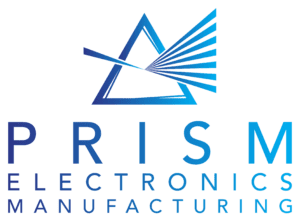The head of operations at Prism has presented a keynote seminar at an electronics industry forum for key stakeholders in the Eastern region.
David Bance was speaking at the Electronics Knowledge Transfer Network (EKTN) meeting hosted by the Cambridge Network at BT Adastral Park in Ipswich.
The EKTN met to identify key trends in electronics devices and examine important issues in supply chain management and the environment. David Bance delivered a presentation entitled ‘Supply Chain Trends’ in which he examined the outsourcing of electronics manufacture and building successful supply chain partnerships.
Commenting on the event David Bance said: “Outsourcing in electronics manufacture is changing and some recent trends are reversing, including off-shoring manufacture among smaller OEMs. Manufacturing is now being brought back closer to home.
“My aim was to demonstrate key trends and show other stakeholders how they can benefit from these by forming strategic manufacturing partnerships. The Cambridge EKTN is the ideal forum in which to exchange ideas like these and identify new industry trends.”
David Bance noted that, anecdotally at least, the off-shoring trend is reversing, particularly amongst SMEs. He outlined three main reasons for this change. Firstly, expected cost reductions were not being realised because the approach adopted was too simplistic from the outset and because of the high costs associated with supplier management.
Secondly, he cited an inability to forecast demand accurately. Thirdly, he said, this also went hand in hand with difficulties in managing the relationships as desired due to language barriers, cultural differences, time zones and legal systems.
“OEMs looking at the bottom line are aiming for the lowest cost. However, in doing that they often overlook other factors including retaining the ability to serve customers rapidly with high-quality products and services. Partnering with a specialist local contract electronics manufacturer allows them to retain those high levels of customer service.”
He added: “Your contract electronics manufacturer partner should be the experienced link that you can rely upon to solve your wider supply and manufacturing problems.”
David noted that building partnerships required transparent and frequent communication to build trust in the notion that the partnership can be mutually beneficial. Contract electronics manufacturers (CEMs) creating these kinds of partnership can provide engineering support by designing for manufacture, reliable quality investigation and test strategies. They can also provide purchasing support by managing materials procurement and obsolescence in addition to production, shipping and delivery, and aftersales support.
The Cambridge Electronics Knowledge Transfer Network event was organised by Cambridge Network and supported by The Department of Business Enterprise and Regulatory Reform (BERR) Technology Strategy Board. It brought together UK capabilities across the electronics value chain, from research through to design and product development, including sales and operations, to promote the sector’s global potential. It aims to facilitate knowledge transfer to help companies realise best practice and create collaborative partnerships.
The meeting kicked off with a buffet lunch and an opportunity to network following which delegates heard David Bance as well as other industry speakers.




